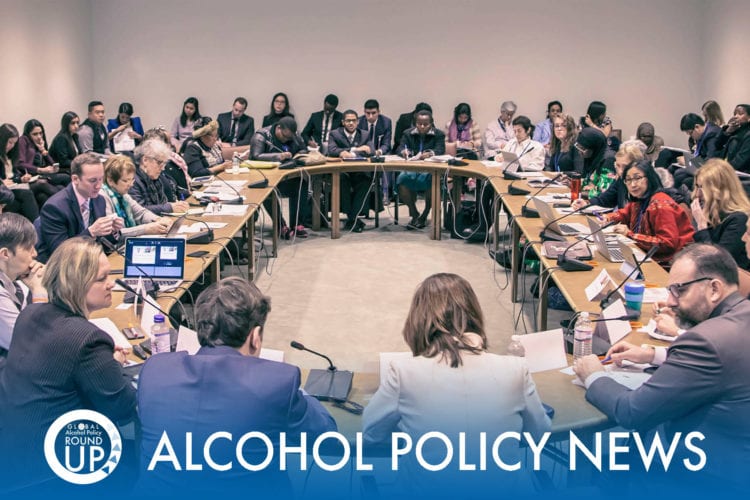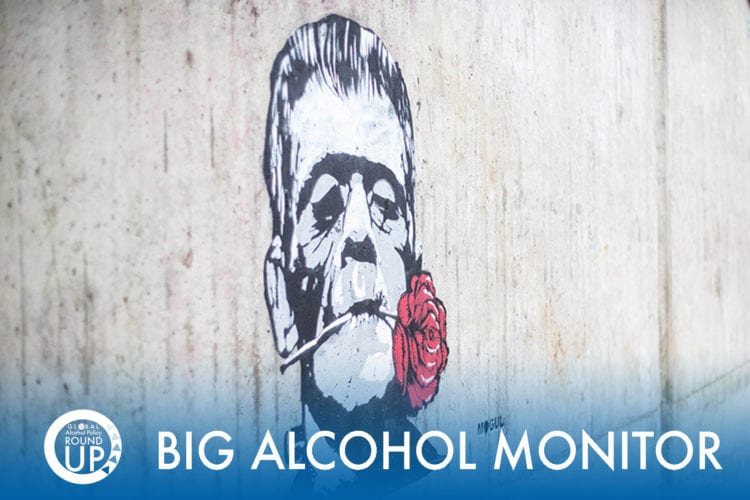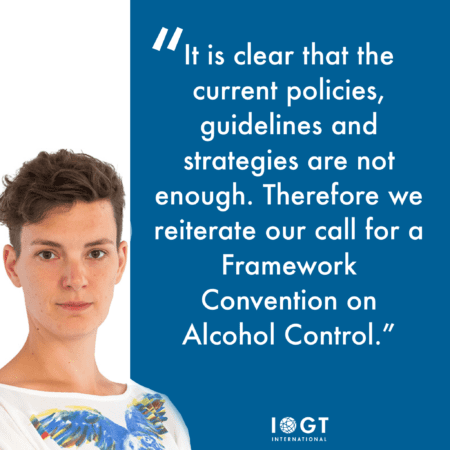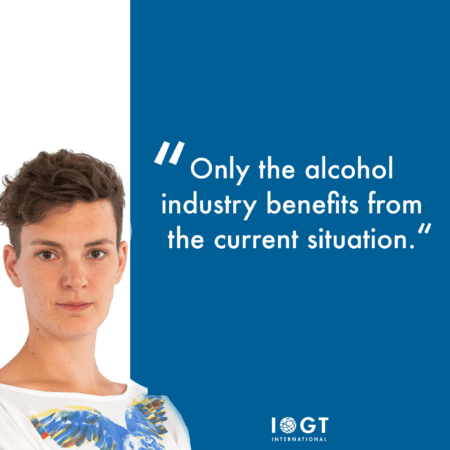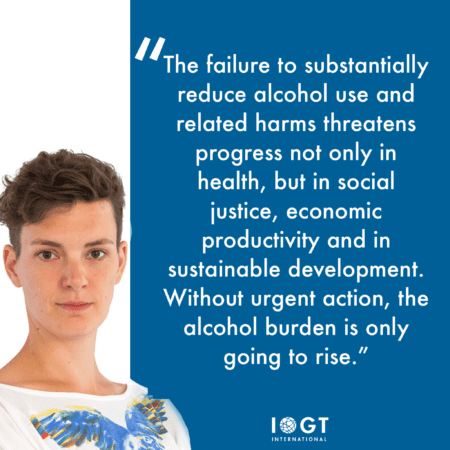Week #19 Global Alcohol Policy Round-Up
WORLDWIDE WEEKLY ALCOHOL POLICY, SCIENCE HIGHLIGHTS
Welcome to our weekly carefully curated alcohol policy news, latest science updates and Big Alcohol monitoring as well as some outstanding blog posts from IOGT’s Global Voices.
This week we feature IOGT International’s commentary to a brand new The Lancet study about global alcohol consumption trends. It’s not looking good.
Our second feature is New York City and alcohol policy improvements in the Big Apple.
- Alcohol policy updates come from Nigeria, the U.S., Australia, Poland, and Canada.
- We share fresh science updates concerning alcohol problems at universities and regarding global trends in alcohol exposure.
- The Big Alcohol monitor exposes alcohol industry lobbying in Australia, incompatible partnerships in the UK and Big Alcohol tactics in France.
- Our IOGT Global Voices cover topics of “Heineken in Africa” and the alcohol norm in Sweden.
Nigeria: Government Raises Alcohol Taxes
The excise tax hike is a positive step by the government in preventing and reducing alcohol harm. Raising taxes is a WHO recommended best buy measure in reducing alcohol use. However, Nigeria needs to focus on formulating a strong alcohol control policy encompassing the key areas recommended by the WHO SAFER package, to reduce the growing alcohol harm in the country.
USA: Alcoholic Liver Disease Rising
The WHO reports alcohol attributable factions for liver cirrhosis death is 74.1% in men and 59.% in women in 2016. More than 34,000 cases of liver cirrhosis are attributable to alcohol, per year.
Furthermore 13.9% Americans suffer from some alcohol use disorder and 7.7% are dependent on the substance. Both of these statistics are high above WHO average for the Americas region.
More than 30,000 cases of cancer are attributable to alcohol.
Australians Think Their Country Has An Alcohol Problem
The 2019 Annual Alcohol Poll: Attitudes and Behavioursshows a steady climb over the past decade of people consuming alcohol wanting to get intoxicated, from 35 to 47%. The Poll also found Australians remain confused about what constitutes low-risk to high-risk alcohol consumption.
The Poll highlights further the dangerous lack of clarity about the long-term risks of consuming alcohol, including mouth, pharynx, larynx, oesophagus, liver and breast cancer. Fewer than half of Australians are aware of the link between alcohol use and mouth and throat cancer (29%) and breast cancer (16%).
Poland: Alcohol, Tobacco Tax Hike Generates 1 Billion Zloty
The tax increase is a positive step by the government to curb the alcohol harm in the country. Increasing excise taxes is one of the alcohol policy best buys recommended by WHO. The increased revenue for the government through tax hikes is also an example for utilizing alcohol taxation for achieving the 2030 Agenda for sustainable development.
Canada: Biggest Drug Problem is Alcohol, Not Opioids
The costs of alcohol-related harm were estimated at $14.6 billion in 2014, according the Canadian Centre on Substance Use. Tobacco was second at $12 billion followed by opioids at $3.5 billion and cannabis at $2.8 billion. It must be noted that this data predate the opioid overdose crisis and cannabis legalization.
Worldwide alcohol consumption and policy trends
“Global alcohol exposure between 1990 and 2017 and forecasts until 2030: a modelling study”
Scientific Article
Global Alcohol Exposure Between 1990 – 2017 And Forecasts Until 2030
The science of harmful alcohol norms at universities
“Impact of Exchange Stay on Alcohol Consumption: Longitudinal Exploration in a Large Sample of European Students”
Research Article
“Genes, Roommates, and Residence Halls: A Multidimensional Study of the Role of Peer Alcohol Consumption on College Students’ Alcohol Use”
Research Article
The Role of Peer Alcohol Consumption on College Students’ Alcohol Use
Australia: Big Alcohol Pumps Big Bucks into Politics
Reasons for Concern: PHE’s Partnerships with Gambling and Alcohol Industry-Funded Charities
Reasons for Concern: PHE’s Partnerships with Gambling and Alcohol Industry-Funded Charities
ANPAA, France: Exposing Big Alcohol Lobbying

Making Sense Of “Heineken In Africa”
by Viktor Watz
The Oppressive Alcohol Norm And The Freedom To Not Use Alcohol
The Oppressive Alcohol Norm And The Freedom To Not Use Alcohol
Special Feature #1
IOGT International media release
The new study published in The Lancet medical journal shows with the most up-to-date data and compelling graphs that adult per capita alcohol consumption has steadily increased over the last two decades and will keep rising in the coming decade. This trend runs counter to political promises made by countries to reduce alcohol use by 10% until 2025.
The latest scientific analysis makes clear that our governments are largely falling short of their duty and promise to protect people, communities and societies from alcohol harm,” says Kristina Sperkova, International President of IOGT International.
https://movendi.ngo/press-release/alcohol-use-projected-to-keep-rising-countries-fall-short-of-promise-to-protect-people/
Special Feature #2
New York City Bans Alcohol Ads from City Property
The mayor seeks to reaffirm the commitment to health equity and protection of well-being of all New Yorkers through this alcohol ad ban. This ban comes more than an year after the MTA banned alcohol advertisements from public transit in NYC.
While calling for the alcohol ad ban in public transit in 2017, activists drew notice to the alcohol harm caused to youth and vulnerable communities. These groups are specifically targeted by Big Alcohol through marketing campaigns.
